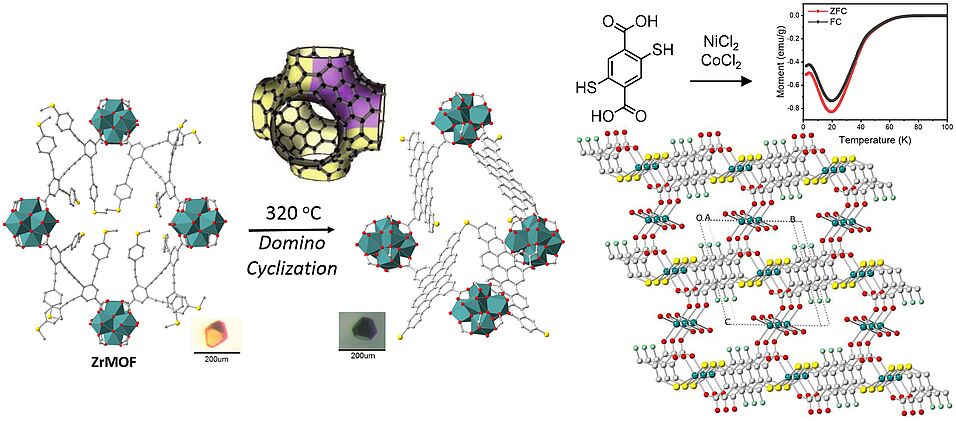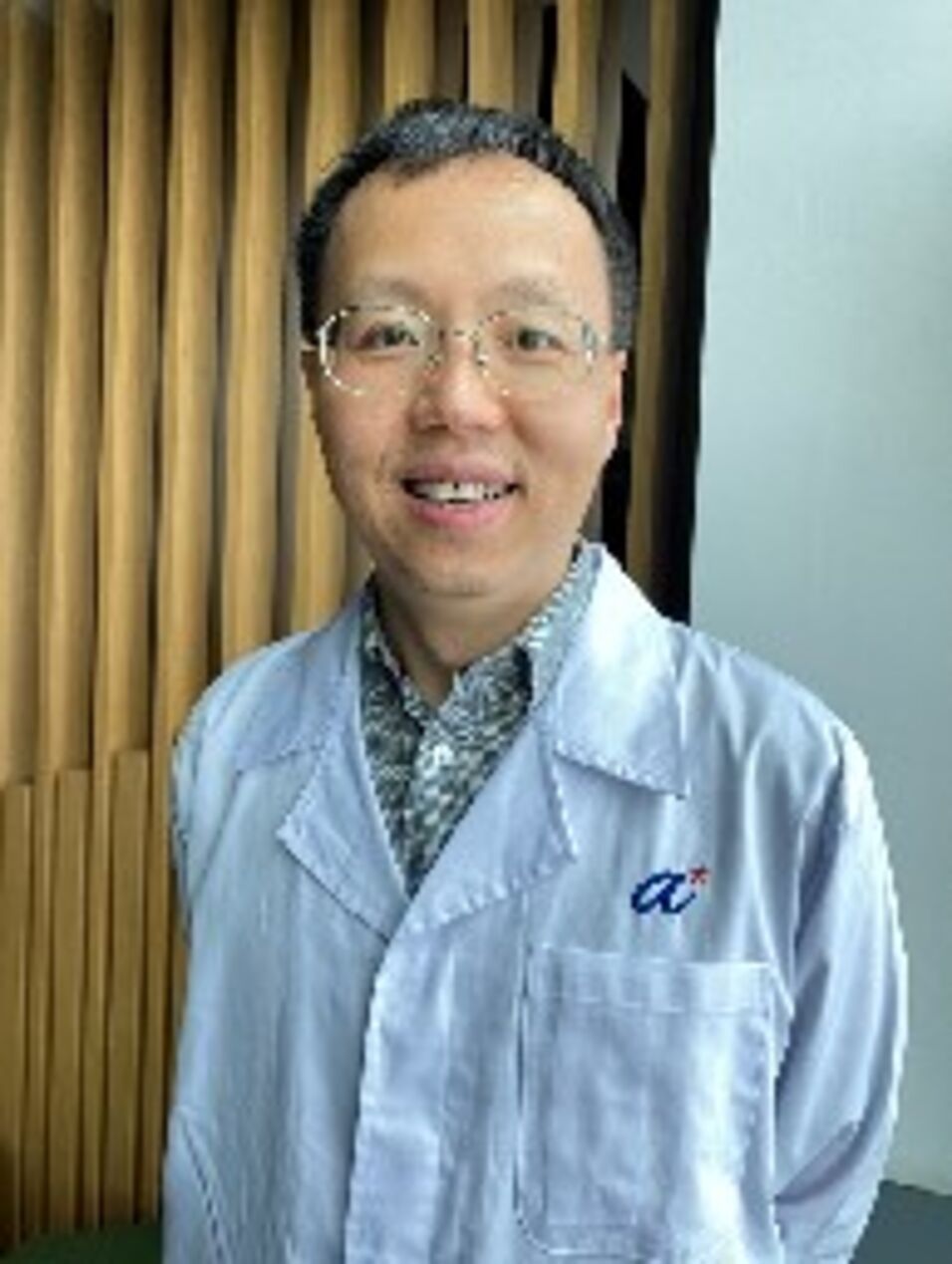Title: "Superconductors and 3D Carbon Crystals: Wild Dreams of Metal-Organic Frameworks"
In the first part, we employ a two-step strategy for accessing crystalline porous covalent networks of highly conjugated π-electron systems emulating the coveted 3D graphenes (Figure, left, a). For this, we first assembled a crystalline metal-organic framework (MOF) precursor based on Zr(IV) ions and a linear dicarboxyl linker molecule featuring backfolded, highly unsaturated alkyne backbones; massive thermocyclization of the organic linkers was then triggered to install highly conjugated, fused-aromatic bridges throughout the MOF scaffold while preserving the crystalline order. The resultant polycyclic aromatic network exhibits greatly enhanced stability, electroactivity and charge transport. In the second part, we report breakthrough in the modular synthesis of MOF solids extensively equipped with the mercaptan function, in order to fully exploit the unique metal-uptake, catalytic and electronic properties afforded by the thiol function, e.g., potential superconductivity observed of a designer coordination polymer system sporting the chemically soft mercaptan and hard carboxyl groups (Figure, right).
Prof. Zhengtao Xu, Institute of Materials Research and Engineering (IMRE), A*STAR, Singapore
After his BS (1996) at Peking University, Xu had a plan for organic chemistry, only to join Stephen Lee’s group at Michigan and receive a PhD from Cornell for works on coordination networks (MOFs). After a postdoc with David Mitzi (IBM, 2001-03), he moved to George Washington University as an assistant professor to open his work on sulfur-equipped MOFs. As life would have it, he then started anew in Hong Kong (from 2005), became a professor in 2015, and relocated to Singapore in 2022. His group at IMRE/A*STAR carries forth the interest in bridging the two worlds of coordination and covalent frameworks, with focus on catalytic and (super)conductive properties. Xu also enjoy Kant, Schopenhauer and other classics.


